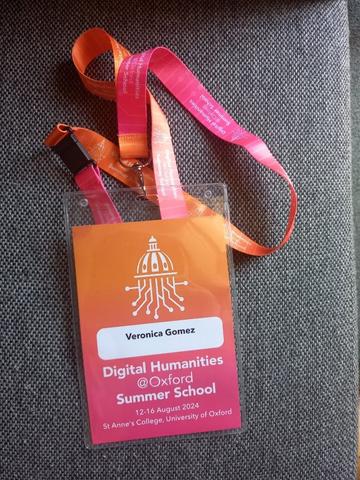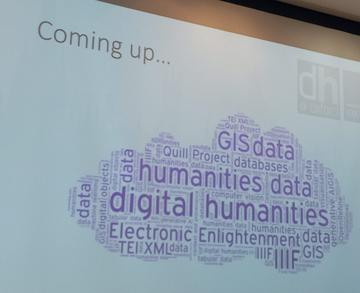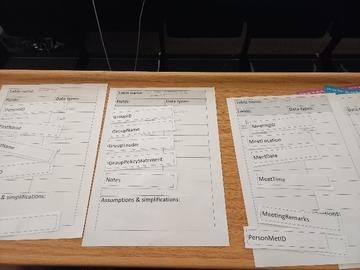Verónica Paula Gómez was awarded a bursary to attend the Digital Humanities Oxford Summer School in 2024. To join the mailing list and learn about the next summer school sign up here. Read about Verónica's experience at the summer school here:
For many years, when I lived in my country, Argentina, I had the fantasy that one day I would be able to join DHOxSS. For the majority of Latin Americans, it is too expensive to travel to Europe, and our institutions usually do not have the resources for young researchers. The inequality of opportunities is a fact that is hard to solve without the help of the global North, something I am studying in my current research "Migrant Cartography of Latin American Electronic Literature: Corporalities, Corporations and Corpus between Global North and Global South". This project is funded by the Alexander von Humboldt Foundation's Georg Forster Research Fellowship Program for Postdocs. But finally, I am here, living in Europe, in Berlin, developing a research that needs a Digital Humanities approach. The timing was perfect, I could apply for the bursary and easily travel to the city. Why not give it a try?
And the dream came true: I won the bursary to spend a week in Oxford at this prestigious Summer School. In the months leading up to the trip, but especially when I arrived in the city and during the Humanities Data course, I immediately felt welcomed by the entire organization as well as by the instructors.

Photo from Verónica Paula Gómez
The event opened with an inspiring keynote from Andrea Wallace. In her talk "Mainstreaming Open GLAM..." she outlined the challenges, issues and opportunities we face in digitizing cultural heritage collections. What impressed me most was her incisive questioning of bias in datasets and the way she challenged our legal, technological and ethical frameworks. She also described the impact of the climate crisis and AI on the digitization of cultural collections, which consequences are so inequal between global North and global South.

Photo by Verónica Paula Gómez
During the five days that we followed this course, we took different approaches that allowed us to critically evaluate different sources and software to effectively analyze and work with the data.
On the first day, one of our instructors gave us a general overview of the different approaches to the course topics, which included GIS data, data visualization, music and sound, the influence of AI, mapping, besides others.

Photo by Verónica Paula Gómez
The presentation of the course overview was complemented by a strand on the importance of contextual factors in developing a full understanding of datasets, particularly in delineating inequalities and biases in data collection. This helped us to question the way in which digital objects are framed with context and provenance.
The strand led by Alexander Shiarella, “Introduction to Humanities Data Visualization”, was of particular interest to me as it gave an overview of using tools for extracting data from images and recognizing visual representations of datasets to perform tasks more effectively.
I was also particularly interested in the hands-on sessions. On the one hand, the session dedicated to Openrefine helped us to learn how to deal with messy data and how to clean it up. On the other hand, we also did manual work to improve our knowledge of how to create a database by labelling, organizing, and questioning different issues addressed in a specific case study.

Photo by Verónica Paula Gómez
The final keynote, “The Politics of Mundane Data Losses in Digital Archival Regimes”, led by Nanna Bonde Thylstrup, questioned the unprecedented capacity for data storage today. How long can this idea of a "digital society that does not forget" last? What implications and controversies does it create in the integral dynamics of this new technological paradigm? The talk was the perfect end to a week in which we thought about storing, organizing, setting, collecting, cleaning, and visualizing our data, but we barely talked about deleting or destroying it, which of course has a big place in everyday archival practices.
Finally, I would like to thank the University of Oxford and the DHOxSS organization, especially Kerri Jones, who has been so kind and supportive in the months leading up to the course. I look forward to seeing you all again in 2025!